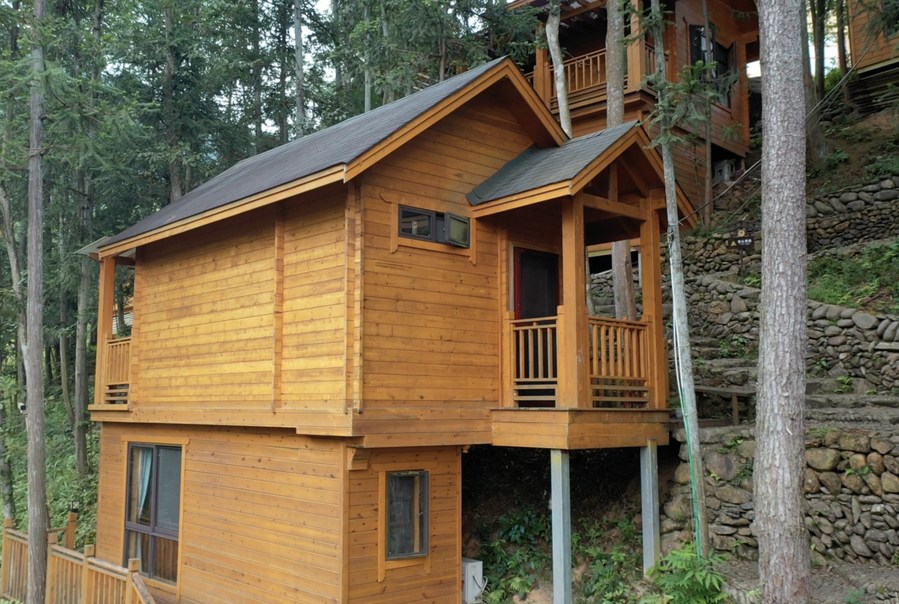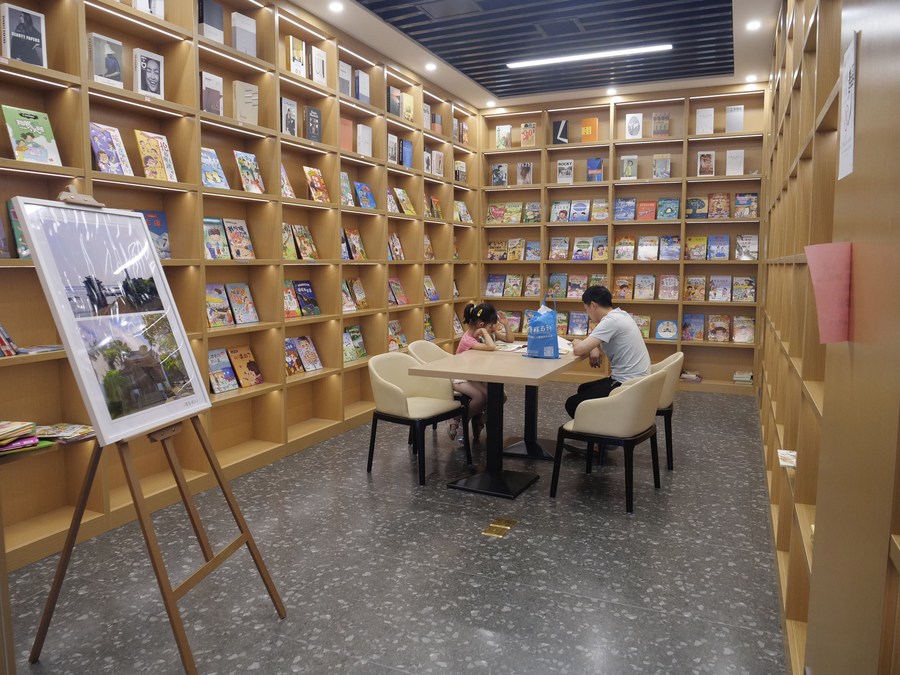Going Green —— Three Ecological Stories along the Yangtze River
Xinhua News Agency, Nanchang, July 21st Title: Go green — — Three ecological stories along the Yangtze River
Xinhua News Agency reporter Chen Zhuzuo
Entrepreneurs who return to the countryside from big cities, "experience officers" of urban life on the banks of Xunyang River, and "researchers" in the aquarium & HELIP; … The reporter recently visited many places in Jiujiang, Jiangxi, and three ecological stories were impressive.
Entrepreneurs returning to the countryside from big cities
"Eat an iced watermelon first, and then a housekeeper will take you to the cabin after the formalities are completed." The person talking to the tenant in front of him is Lu Xianfeng, the head of Yueshan Residential Quarter in Changshui Village, Luoping Town, Wuning County, Jiujiang City. This is his sixth year of "treasure hunting" in Changshui Village.
In 2016, Lu Xianfeng, who worked in Tangshan for three years, became the head of the northern market of a travel company. Seeing that the mountains and rivers in his hometown contain business opportunities, he quit his job in the city and returned to his hometown to invest in the development of the homestay industry. Just after the Spring Festival in 2017, the B&B broke ground.

The picture shows the wooden house in the forest where Yueshan residents live in Changshui Village, Luoping Town, Wuning County. Xinhua News Agency reporter Guo Jiewen photo
Main business operation, multi-point extension. Today, the B&B has 21 wooded cabins and 60 standard rooms, which are built by the mountains and rivers, and carry out business such as agricultural product sales, catering, leisure and entertainment. In May this year, it received more than 2,500 passengers.
Seeing that Lu Xianfeng did a good job, local villagers also joined in, vigorously developing rural tourism, under-forest economic industries and characteristic homestays. In 2022, the village collective income reached 1.39 million yuan, an increase of 33.8% over the previous year.
The "experience officer" of urban life along Xunyang River.
"Not enough, not enough at all." Yang Jie, a citizen of Jiujiang, told reporters that since Pipa Bookstore opened, she has been in the bookstore almost every weekend morning. "I will order a cup of coffee on the first floor and then choose a book on the second floor to read it carefully."
Pipa Bookstore is located in Changjiang National Cultural Park (Jiujiang Section), Xunyang District, Jiujiang City. There are not only more than 5,000 books for free reading, but also coffee shops and tea rooms with Xunyang cultural characteristics on the first and third floors respectively. Since its opening in June this year, about 25,000 people have come here to "enjoy books and enjoy culture".
"Last week, I was in the bookstore with two friends in the morning and went to the Pipa Pavilion not far apart in the afternoon to see the immersive exhibition Pipa Travel, which was particularly shocking." Yang Jie said.

The picture shows the citizens reading books in the Pipa Bookstore of the Yangtze River National Cultural Park (Jiujiang Section). Xinhua News Agency reporter Guo Jiewen photo
Show the Millennium context and create a "show belt" of emerging culture. Jiujiang makes full use of the natural scenery and Xunyang cultural characteristics of the Yangtze River coastline to create the "most beautiful coastline" of the Yangtze River National Cultural Park (Jiujiang section). Nowadays, cultural landmarks such as Pipa Pavilion, Xunyang Building and Pipa Bookstore are connected in series, and the "Xunyang River Fun Summer Party" in Zhenbuffalo Square enriches the night economic consumption format.
Before leaving the bookstore, Yang Jie took a photo and sent it to a circle of friends. The essay wrote: "Read ten thousand volumes of poetry books, visit the cultural Yangtze River, and the happiness index of urban life is up up up!"
The little "researcher" in the aquarium
In China finless porpoise bay (Hukou) aquatic biological protection base, there are children everywhere. Next to an aquarium, the reporter heard a young but determined voice.
"This one is a sturgeon, and this one with an oblique rectangular shape and black stripes is a mullet … …” Zhu Guoyuan, a 9-year-old tourist, took his mother to talk in front of the aquarium. Zhu Guoyuan’s mother said: "He likes all kinds of fish since he was a child, so he just took advantage of the summer vacation to take him to visit."
China finless porpoise bay (Hukou) aquatic biological protection base is located on the bank of Poyang Lake in Hukou County, Jiujiang City, which integrates aquatic biological protection and popular science education. Since its trial operation on December 31, 2022, it has received more than 150,000 tourists.
"When I was his age, many creatures in the Yangtze River could only be seen in textbooks. Now it is very different. The environment of the Yangtze River is getting better and better, and there are such protection bases." While speaking, Zhu Guoyuan asked his mother to see his new discovery — — A popular science exhibition machine, choose classification and point name, and display rich graphic, audio and video content in front of you.
Zhu Guoyuan said, "My classmates call me ‘ Encyclopedia of Fish ’ I hope that when I grow up, I still have the opportunity to continue to study them. "